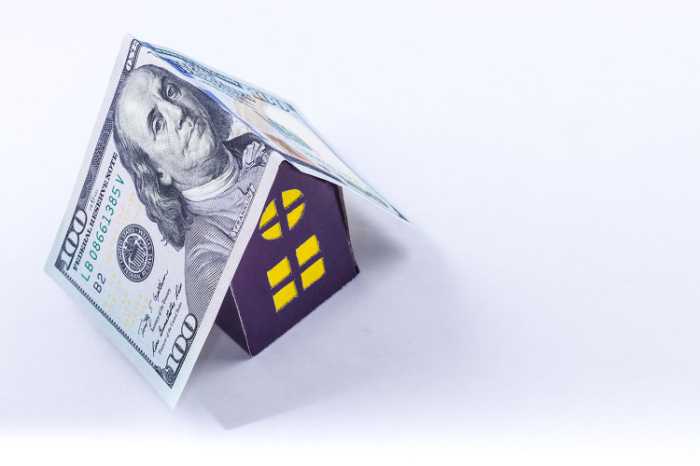The insurance company has sent you a check with your name on it. You have to admit, it's pretty exciting. But what are you supposed to do with this money? In this article, we'll explore how an insurance settlement works and how best to handle these funds so that you can take full advantage of your money!
What is a Roof Insurance Claim?
A roof insurance claim is filed when your roof has been damaged and you need to have it repaired or replaced. Your insurance company will send an adjuster to inspect the damage and determine the cost of repairs. Once the adjuster has made their determination, they will provide you with a settlement offer.
Roof damage claims in case of severe weather events like hurricanes, windstorms, or hail damage are usually high value compared to other homeowner claims.
Repair coverage or insurance payment for a new roof largely depends on the type of roofing system you have. Some roofs are not covered by insurance at all.
If a natural disaster damages your home, filing a roof damage claim with your insurance company as soon as possible will be in your best interest. The sooner you file a claim, the sooner an adjuster inspects the damage, and the sooner the claims process can begin.
Storm damage, particularly from wind and hail, is the most common type of roof damage that homeowners file claims for.
To have a storm damage claim approved, you will need to provide your insurance company with proof that the damage was caused by the storm. This can be in the form of photos, videos, or a report from a certified inspector.
Filing a Homeowners Insurance Claim
If your roof has been damaged and you need to file an insurance claim, the first step is to contact your insurance agent or company. They will assign an adjuster to inspect the damage and determine the cost of repairs. Once the adjuster has made their determination, they will provide you with a settlement offer.
If you accept the insurance company's settlement offer, they will issue you a check (or checks–more on that below) for the amount of the settlement. If you don't agree with the settlement offer, you can negotiate with the insurance company or hire a public adjuster to help you.
What Not to Do With your Roof Damage Claim Check
Once you've received your roof damage insurance claims check, it's important to know what not to do with the money. One of the worst things that you can do is to spend the money before you have a contractor lined up to do the repairs. It's also important to resist the temptation to use the money for other purposes, such as other home improvements (or literally anything else). The money from your roof damage insurance claim is meant to be used specifically for repairing or replacing your roof and nothing else.
What the Insurance Company Covers
Your insurance company will cover the cost of repairing or replacing your roof, up to your policy limit. In most cases, your deductible will apply and will be deducted from the total amount paid by your insurance company. It's important to read your policy carefully so that you are aware of what is and isn't covered. Most times, wind and hail damage to your roof will be covered, but the damage caused by excessive wear and tear or poor maintenance will not be covered.
Replacement vs Actual Value
Replacement Cost Coverage:
Replacement cost coverage is different from Actual Cash Value (ACV) because it pays to replace your roof without taking into account depreciation. So, if you have replacement cost coverage and your roof is 10 years old and would cost $10,000 to replace, your insurance company would pay the full $10,000 to replace it.
Replacement Cost Value:
The replacement cost value (RCV) of your roof is the amount it would cost to replace your roof without taking into account depreciation OR the actual cash value.
Actual Cash Value:
The actual cash value (ACV) of your roof is the amount it would cost to replace your roof minus depreciation. So, if your roof is a 20-year roof and is now 5 years old and would cost $10,000 to replace, the ACV would be $7,500 because of the depreciation that has occurred over the 5 years.
Actual Cash Value Coverage:
Actual cash value coverage is different from replacement cost coverage because it pays to replace your roof minus depreciation. So, if you have actual cash value coverage and your roof is 10 years old and would cost $10,000 to replace, your insurance company would pay less than the original amount to replace it since that is the ACV of the roof.
To give you a plausible scenario: if your roof is 12 years old and the expected lifespan is 30 years, your insurance company may consider your roof depreciated by 40% (12/30) of the actual value.
What does this mean for you?
If you're like most people, you probably don't have a lot of money just sitting around. So when the insurance company offers you a check for your roof damage claim, it can be tempting to just cash it and move on with your life. However, if you do this, you may be missing out on some money that you're entitled to.
When Depreciation is Paid and How it Affects Your Claim
If you decided to keep your insurance money (rather than have the repair done), there won't be an invoice to send to your insurance company, and you won't receive anything for the depreciation.
Example scenario: your insurance company pays you $8,000 on a $15,000 claim. 40% depreciation is worth $6,000, which you will only receive once the work is done. If you decide to keep the $8,000 and not have the work done, you will lose the $6,000 check meant for depreciation.
MORE Costly Consequences
Missing out on depreciation isn't the only consequence of keeping/spending your first insurance claim check. If an insurance company pays out for work that never gets done, they will often apply that as a credit to any future claims.
Example scenario: your insurance company pays you $8,000 on a $15,000 claim (waiting to pay an additional $6,000 for depreciation minus your $1,000 deductible). You decide to keep the $8,000 and never have the work done, as is your prerogative. Your insurance company may just withhold $8,000 on your next claim. So, not only have you lost out on $6,000 for depreciation, but you also lost out on a future $8,000.
Additional Considerations
Roof Claim Denials - What to do Next
After a roof claim has been denied, the next step is to contact your insurance agent or broker. If you are still unable to resolve the issue, you may need to consult with an attorney who specializes in insurance law. An attorney will be able to review your policy and help you determine if you have a case against your insurance company.
Deductible(s) Offered by Your Roofing Contractor
If you have a roofing contractor that offers to pay your deductible, beware! It is likely that they will use inferior materials and do a sub-par job in order to make up for the money they are losing by paying your deductible. In some cases, they may even void your warranty or fail to properly file the necessary paperwork with your insurance company. It is always best to pay your own deductible and hire a reputable contractor that you can trust.
If you have a deductible, it’s the amount of money you pay before your insurance company will start paying out. It’s usually a percentage of the total claim. For example, if your deductible is $1,000 and your roof costs $10,000 to replace, you will pay $1,000 and the rest of the cost is covered by insurance.
A Roofing Company's Insurance Policy
You should always confirm that your roofing company has its own insurance before hiring them. A reputable roofing company will have both general liability and workers' compensation insurance. General liability insurance protects you from any damage that may occur to your property during the roofing project. Workers' compensation insurance protects you from any injuries that may occur to the roofers while they are working on your roof.
If you have roof damage, it's important to file an insurance claim right away. Your insurance company will cover the cost of roof replacement or roof repairs, minus your deductible. It's important to resist the temptation to spend the money from your insurance claim on other things. The money should be used specifically for repairs or replacement of your roof. Always confirm that your roofing company has insurance before hiring them. A reputable roofing company will have both general liability and workers' compensation insurance.
If you need an experienced roofing company to work with you and your insurance company, be sure to get in touch!




